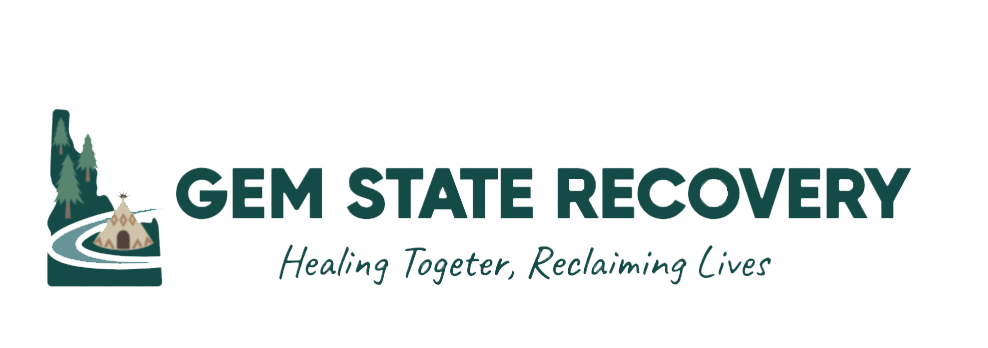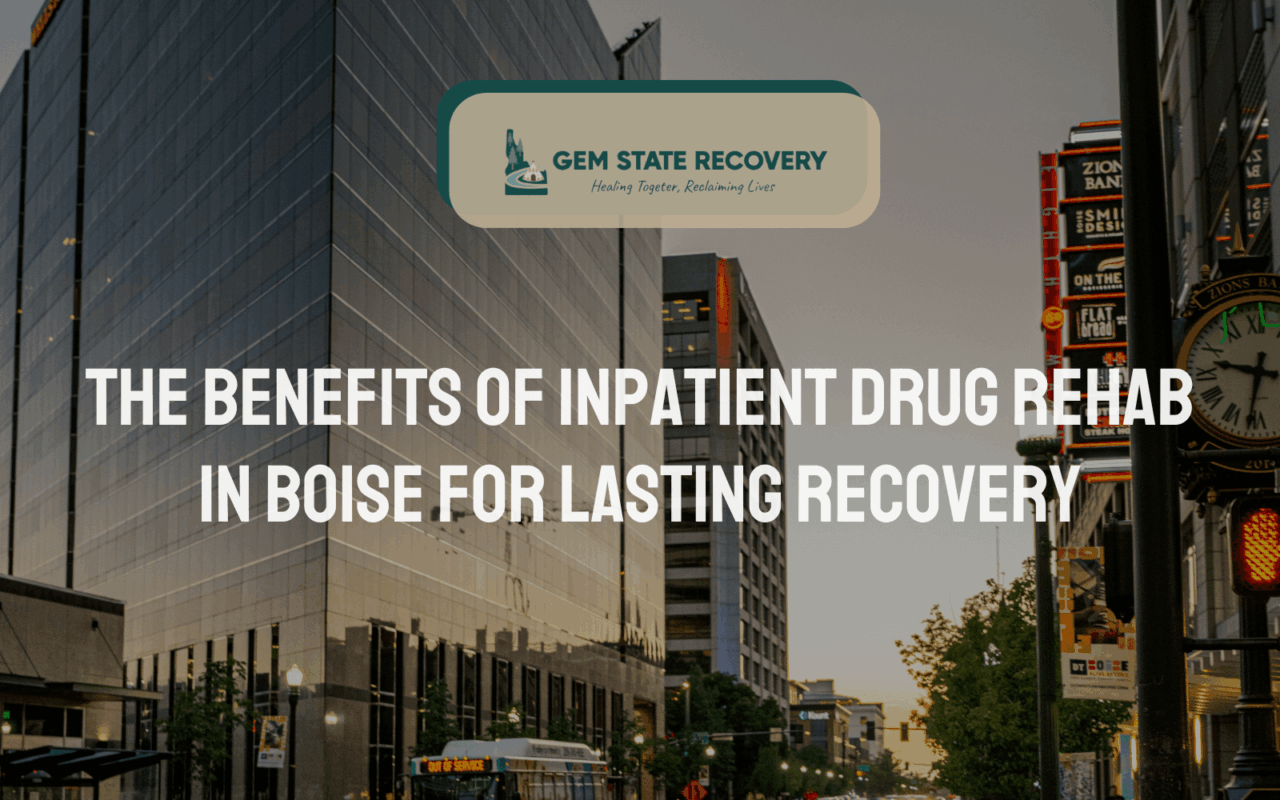Addiction is a complex disease that affects millions of individuals and families across the United States. Idaho is no exception. For those struggling with substance abuse in the Treasure Valley, inpatient drug rehab in Boise offers hope. It provides a comprehensive path toward lasting recovery. Unlike outpatient programs, patients don’t return home each day. Inpatient rehabilitation provides 24/7 medical supervision and intensive therapy. The structured environment breaks the cycle of addiction. It builds a foundation for long-term sobriety.
Inpatient Drug Rehab in Boise
Inpatient drug rehab in Boise facilities understand that addiction recovery is not a one-size-fits-all process. Each person’s journey with substance abuse is unique. Factors include the type of substance used and duration of addiction. Co-occurring mental health disorders, family history, and personal circumstances also play a role. This individualized approach makes inpatient drug rehab in Boise so effective. It helps people achieve and maintain sobriety. It also addresses the underlying issues that contribute to addictive behaviors.
Comprehensive Addiction Intervention Services
The journey to recovery often begins with professional addiction intervention, a critical component offered by inpatient drug rehab in Boise facilities. Addiction intervention is a carefully planned process designed to help individuals recognize the severity of their substance abuse problem and motivate them to seek treatment. Professional interventionists work closely with family members, friends, and loved ones to create a supportive yet firm approach that encourages the individual to accept help. Inpatient drug rehab in Boise programs typically include several key elements in their addiction intervention services:
Professional intervention planning – Trained interventionists work with families to develop a structured approach tailored to the individual’s specific situation, personality, and addiction severity. This planning phase includes education for family members about addiction as a disease and how to communicate effectively during the intervention process.
Family preparation and education – Before the intervention takes place, family members receive comprehensive training on how to express their concerns without judgment, set appropriate boundaries, and present treatment options in a compelling yet compassionate manner.
Immediate treatment placement – Successful interventions require having immediate access to treatment facilities. Inpatient Drug Rehab in Boise centers coordinate with intervention specialists to ensure that beds are available and admission can occur immediately following a successful intervention.
Follow-up support services – Even after the individual agrees to enter treatment, ongoing support for both the person with addiction and their family members continues throughout the recovery process, helping to maintain motivation and address any concerns that arise during treatment.
Medical Detoxification Programs
One of the most significant advantages of inpatient drug rehab in Boise is access to medically supervised detoxification programs. Detox is often the first step in the recovery process, as it allows the body to eliminate harmful substances while managing potentially dangerous withdrawal symptoms. Without proper medical supervision, withdrawal from certain substances can be life-threatening, making professional detox programs essential for safe recovery. Inpatient drug rehab in Boise detox programs provide comprehensive medical support that includes:
24/7 medical monitoring – Qualified medical professionals continuously monitor patients during the detoxification process, tracking vital signs, managing symptoms, and ensuring patient safety throughout withdrawal. This round-the-clock care is particularly crucial for individuals withdrawing from alcohol, benzodiazepines, or other substances that can cause severe complications.
Inpatient drug rehab in Boise facilities offer both inpatient and outpatient treatment options, allowing individuals to choose the level of care that best meets their needs. Inpatient treatment provides the highest level of care and is typically recommended for individuals with severe addictions, multiple failed attempts at recovery, or those who lack a supportive home environment.
The comprehensive treatment options available through inpatient drug rehab in Boise include:
Residential inpatient care – Patients live at the treatment facility for 30, 60, 90 days or longer, depending on their individual needs. This intensive level of care provides structure, removes triggers and temptations, and allows for focused attention on recovery without outside distractions.
Intensive outpatient programs (IOP) – For individuals who have completed inpatient treatment or those who can maintain their daily responsibilities while in recovery, IOPs offer several hours of treatment per day while allowing patients to return home each evening.
Partial hospitalization programs (PHP) – This level of care provides more intensive treatment than traditional outpatient programs but allows patients to sleep at home. PHPs typically involve 6-8 hours of treatment per day, 5-7 days per week.
Continuing care planning – inpatient drug rehab in Boise programs develop comprehensive aftercare plans that may include ongoing therapy, support group participation, sober living arrangements, and regular check-ins with treatment professionals to prevent relapse and maintain long-term sobriety.
Transitional Living and Residential Treatment
The transition from intensive inpatient care back to independent living can be challenging for many individuals in recovery. Inpatient drug rehab in Boise facilities often provide transitional living and residential treatment options to bridge this gap and provide additional support during the vulnerable early stages of recovery. Transitional living and residential treatment services offered by inpatient drug rehab in Boise programs include:
Sober living environments – These structured living arrangements provide a substance-free environment where residents can practice the skills learned in treatment while gradually reintegrating into society. Sober living homes typically have house rules, curfews, and requirements for employment or continued treatment participation.
Extended residential care – For individuals who need longer-term support, extended residential programs may last several months to a year or more. These programs provide ongoing therapy, life skills training, and gradual transition planning to ensure individuals are fully prepared for independent living.
Life skills development – Residential programs focus on practical skills such as budgeting, job searching, cooking, cleaning, and time management. These skills are essential for maintaining independence and reducing the risk of relapse once individuals leave the structured treatment environment.
Peer support and accountability – Living with others in recovery provides natural peer support and accountability. Residents often form strong bonds and continue to support each other long after completing the program, creating a network of sober friends who understand the challenges of recovery.
Evidence-Based Therapeutic Approaches
Inpatient drug rehab in Boise facilities utilize evidence-based therapeutic approaches that have been proven effective in treating addiction and co-occurring mental health disorders. These therapies address the psychological, emotional, and behavioral aspects of addiction while teaching practical coping skills for long-term recovery. The comprehensive therapeutic services available through inpatient drug rehab in Boise include:
Cognitive Behavioral Therapy (CBT) – CBT helps individuals identify and change negative thought patterns and behaviors that contribute to substance abuse. Patients learn to recognize triggers, develop healthy coping mechanisms, and create strategies for managing cravings and avoiding relapse.
Dialectical Behavior Therapy (DBT) – Originally developed for borderline personality disorder, DBT is highly effective for individuals with addiction and co-occurring mental health issues. This therapy focuses on emotional regulation, distress tolerance, interpersonal effectiveness, and mindfulness skills.
Eye Movement Desensitization and Reprocessing (EMDR) – Many individuals with addiction have underlying trauma that contributes to their substance abuse. EMDR is a specialized therapy that helps process traumatic memories and reduce their emotional impact, allowing individuals to address trauma without turning to substances for relief.
Individual therapy sessions – One-on-one therapy provides personalized attention and allows individuals to work through specific issues, trauma, or mental health concerns that contribute to their addiction. Individual therapy sessions are typically conducted by licensed therapists or counselors who specialize in addiction treatment.
Group therapy participation – Group therapy allows individuals to share experiences, learn from others facing similar challenges, and develop social skills in a supportive environment. Group sessions may focus on specific topics such as trauma, grief, relationships, or coping skills development.
Relapse Prevention and Long-Term Support
One of the primary goals of inpatient drug rehab in Boise programs is to provide individuals with the tools and strategies needed to maintain long-term sobriety. Relapse prevention is a crucial component of treatment that helps individuals identify personal risk factors, develop coping strategies, and create comprehensive plans for maintaining recovery after leaving treatment. Inpatient drug rehab in Boise relapse prevention services include:
Trigger identification and management – Therapists work with individuals to identify personal triggers that may lead to substance use, such as specific people, places, emotions, or situations. Once triggers are identified, individuals learn healthy coping strategies and avoidance techniques.
Coping skills development – Patients learn practical skills for managing stress, anxiety, depression, and other emotions without turning to substances. These may include relaxation techniques, exercise, meditation, journaling, or creative expression.
Support system building – Building a strong support network is essential for long-term recovery. Inpatient drug rehab in Boise programs help individuals identify supportive relationships and may facilitate connections with local recovery communities, support groups, and mentors.
Ongoing monitoring and check-ins – Many programs provide continued contact with treatment professionals after discharge, including regular phone calls, follow-up appointments, or participation in alumni programs to monitor progress and provide additional support when needed.
Mentoring Programs and Peer Support
Inpatient drug rehab in Boise facilities often incorporate mentoring programs that connect individuals in early recovery with those who have successfully maintained long-term sobriety. These mentorship relationships provide inspiration, guidance, and practical advice from people who have successfully navigated the recovery process. Mentoring program benefits offered through inpatient drug rehab in Boise include:
Experienced guidance – Mentors who have successfully maintained sobriety for extended periods can share practical strategies, warn about common pitfalls, and provide hope during challenging times in recovery.
Accountability partnerships – Regular contact with a mentor creates natural accountability and provides someone to reach out to during moments of temptation or crisis.
Real-world recovery examples – Seeing someone who has successfully rebuilt their life after addiction provides concrete proof that long-term recovery is possible and demonstrates what life in recovery can look like.
Ongoing relationship development – Mentoring relationships often continue long after formal treatment ends, providing a lasting source of support and friendship that can be crucial during difficult periods in recovery.

Family Support and Healing
Addiction affects not only the individual struggling with substance abuse but also their entire family system.
Inpatient drug rehab in Boise programs recognize the importance of involving family members in recovery. They provide support for healing family relationships damaged by addiction. Family support services offered by inpatient drug rehab in Boise include:
Educational workshops – Family members attend educational sessions to learn about addiction as a disease. Support groups for families – Many facilities offer support groups specifically for family members. These provide a space to share experiences and receive emotional support. Families learn from others who have faced similar challenges with a loved one’s addiction.
Communication skills training – Families learn healthy communication techniques. These include how to express concerns without judgment. They learn to set appropriate boundaries. They provide support without enabling continued substance abuse.
Alumni Programs and Continued Connection
The relationship between individuals and their treatment facility doesn’t end upon discharge.
Inpatient drug rehab in Boise programs often maintain strong alumni networks. These provide ongoing support, social connection, and opportunities for continued growth in recovery. Alumni programs create lasting communities of support. They can be instrumental in maintaining long-term sobriety. Inpatient drug rehab in Boise alumni programs typically offer:
Regular alumni events – Social gatherings, educational workshops, and recreational activities bring graduates together. They maintain connections with peers and treatment staff. They also celebrate recovery milestones.
Mentorship opportunities – Alumni who have maintained long-term sobriety often become mentors. They support current patients or recent graduates. This creates a cycle of support and giving back to the recovery community.
Continued education and growth – Alumni programs may offer ongoing workshops on various topics. These include relationship building, career development, and financial planning. Personal growth workshops support continued success in all areas of life.
Crisis support resources – Alumni networks provide additional resources during challenging times. They offer peer support and connection to professional help when needed. This helps prevent relapse and maintain recovery.
Conclusion
Inpatient drug rehab in Boise offers comprehensive, evidence-based treatment that addresses all aspects of addiction and recovery. From medically supervised detoxification through long-term aftercare support, these programs provide essential structure. They offer professional expertise and community support for lasting sobriety. Medical care, therapeutic intervention, family involvement, and peer support create a strong foundation. This combination can transform lives and heal families affected by addiction. For individuals struggling with substance abuse, inpatient drug rehab in Boise represents hope. It offers healing and the possibility of a new life free from addiction.
Let us assist you along your path to recovery. Call us at (208) 314-3107 or visit our website. Comprehensive treatment approaches and experienced professionals guide the way. Ongoing support systems offer the best opportunity for lasting recovery. You can rebuild a meaningful, substance-free life.





